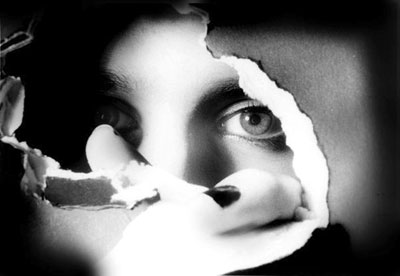All Nonfiction
- Bullying
- Books
- Academic
- Author Interviews
- Celebrity interviews
- College Articles
- College Essays
- Educator of the Year
- Heroes
- Interviews
- Memoir
- Personal Experience
- Sports
- Travel & Culture
All Opinions
- Bullying
- Current Events / Politics
- Discrimination
- Drugs / Alcohol / Smoking
- Entertainment / Celebrities
- Environment
- Love / Relationships
- Movies / Music / TV
- Pop Culture / Trends
- School / College
- Social Issues / Civics
- Spirituality / Religion
- Sports / Hobbies
All Hot Topics
- Bullying
- Community Service
- Environment
- Health
- Letters to the Editor
- Pride & Prejudice
- What Matters
- Back
Summer Guide
- Program Links
- Program Reviews
- Back
College Guide
- College Links
- College Reviews
- College Essays
- College Articles
- Back
Females in politics: What's all the hubbub about?
Many will remember the withdrawal of female GOP candidate Michele Bachmann from the Republican presidential nomination race early this January. An Iowan-native who made her name as the Republican “Tea Party” movement gained momentum, Bachmann was characterized by the media as extreme and over-bearing.
The media is, undeniably, harsh on most political figures. Are its portraits of politicians like Bachmann fair? Exaggerated? Does being a woman have anything to do with it, or was it just her personality and conservatism?
In terms of gender, female politicians are a minority and face the jointed hardships of such a position. Some might remember the abrasive and sometimes derisive coverage of Sarah Palin in the 2008 election. Palin’s conservative stance was often depicted as a holier-than-thou or overly radical view.
Media outlets put Bachmann in the same light. Some were particularly critical of her views on homosexuality. Mocking headlines ran rampant, like “Boy, 8, Tells Bachmann His Gay Mommy Doesn’t Need to Be ‘Fixed’” from ABC News or another that mocked her husband’s “gay therapy” ('Pray Away the Gay at Candidate’s Clinic?').
To be sure, having such beliefs on an ultra-polarizing issue like homosexuality is sure to create some media hubbub. Unlike many nations, the U.S. has a free press and tends to welcome differing viewpoints, but the criticisms come from and go to each side. Politicians have to be thick-skinned individuals.
Still, according to a UCLA political science study, media bias is real. "There is a quantifiable and significant bias in that nearly all of [the major media outlets] lean to the left," said the study’s lead author, Tim Groseclose. Could there be other factors that contribute to gender media attention?
Beside political beliefs, personality might carry greater implications for female candidates than males. Women are already individualists to enter such a hostile environment for their sex. With such a strong woman often comes a strong personality, and not everyone interprets this trait as positive.
Candidates like Palin, Bachmann, and Hillary Clinton solicited equally strong emotions, to say the least, from the public during their campaigns. In August of 2006, for example, Time magazine featured Hillary Clinton on its cover. Beneath her profile, two red boxes were left empty. One read "Love Her" and the other, "Hate Her." "Check One" was printed below.
All women in the public spotlight are subject to such resolute judgments, First Lady Michelle Obama in particular. Coupled with the issue of race, Mrs. Obama’s position in the public eye during her husband’s presidential campaign aroused theoretic portrayals of an "angry black woman."
Though an accomplished lawyer herself, Mrs. Obama was painstakingly scrutinized over lack of patriotism and a surplus of radicalism. Now, analysis of her supposed forceful nature in behind-the-scenes politics at the White House has emerged in Jodi Kantor’s book, "The Obamas." It is hard to determine where these disparaging speculations originated.
As is obvious, politicians—or sometimes first ladies—and journalists have a love-hate relationship. The one provides substance for an article while the other provides attention to the issue at hand. It would seem that journalists have more power in the situation, however.
Despite personal convictions and political beliefs, every journalist worth his word count knows not to be biased. But, media outlets get to choose what they cover. And while media coverage is objective in theory, it can be easily argued if this is or is not the case in real-life.
Whether seen though a biased lens or not, we tend to remember the women in politics really well because they’re a relatively new addition to the changing kaleidoscope of American politics. Whether you hate ’em or love ‘em, something has to be said for these brave women and their determination. They are inspiring a whole new generation of young women, and that’s something to be commended.

Similar Articles
JOIN THE DISCUSSION
This article has 1 comment.
